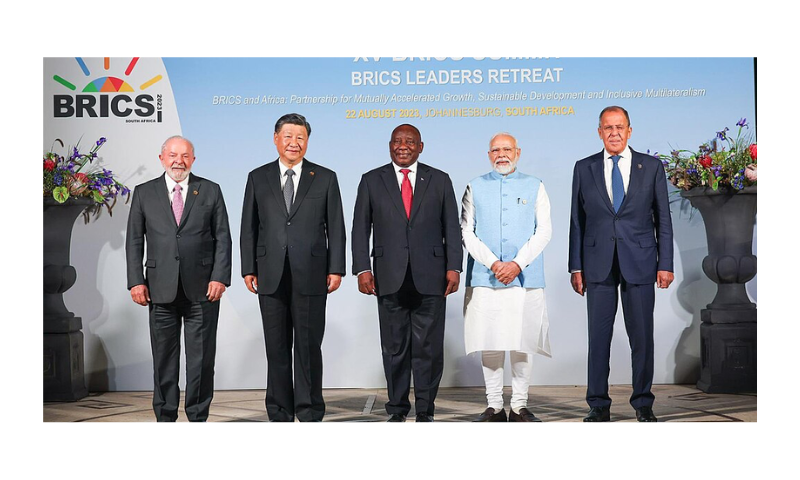David Rosenberg
Haaretz, Aug. 24, 2023
“Prime Minister Benjamin Netanyahu makes noises about “options” with China out of frustration that he has not been extended a White House invitation. But joining BRICS would have nothing more than symbolic value, and the symbolism would not be welcomed by Washington.”
What is it about BRICS, an informal grouping of five countries designed to encourage commercial, political, and cultural cooperation among its members, that makes it the club everyone wants to join these days?
Ahead of the annual conference of the group, which until Thursday comprised Brazil, Russia, India, China and South Africa, in Johannesburg, some 40 countries – about a fifth of the world total – applied to join In the end, the group agreed to admit only six of them because some of the existing members weren’t keen on expanding membership. The ones who made the cut were Saudi Arabia, Egypt, the UAE, Argentina, Ethiopia and Iran.
The applicant pool represented a diverse assortment, including a few rich ones (Saudi Arabia, the United Arab Emirates), many poor (the Democratic Republic of Congo, Ethiopia, Egypt), one Communist country (Cuba), a theocracy (Iran) and a democracy (Argentina). What the waiting list didn’t include was a single wealthy Western democracy.
In what has to be one of the more bizarre trajectories in international relations, BRICS (originally BRIC) was the brainchild of a Goldman Sachs investment banker trying to sell clients on the idea of investing in Brazil, Russia, India and China. That was in 2001, when all four countries were considered economic dynamos. Only eight years later did the BRIC countries latch onto the idea of being an international organization and begin meeting as a group (admitting South Africa to make it BRICS in 2010).
That banker, Jim O’Neill, never thought of the BRIC countries as anything more than four components of an investment portfolio. But they not only became a club: irony of ironies, their clique has come to challenge the Western-dominated international order, mostly in the realm of economics.
… [To read the full article, click here]


